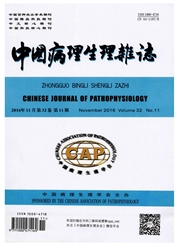

 中文摘要:
中文摘要:
核因子κB抑制蛋白(inhibitor of NF—κB,IκB)是核因子κB(nuclear factor-kappa B,NF—κB)的抑制因子。IκB蛋白家族与Rel/NF—κB蛋白家族一样,也是一个大家族,它们都来源于相同祖先NF—κB/IκB超家族的Rel同源区-锚蛋白重复序列区(Rel homology domain-ankyrin repeat domain,RHD-ARD)结构。IκB蛋白一方面可以在胞浆中与NF—κB二聚体结合形成复合物,抑制NF—κB进入细胞核发挥转录激活作用;另一方面也可以直接在细胞核内抑制NF—κB与DNA的结合。
 英文摘要:
英文摘要:
IκB is an inhibitor of nuclear factor - kappa B ( NF -κB) and presents in the majority of cells. Eight structurally related members of the mammalian IκB family have been described : IκBet, IκBα, IκBβ, Bcl - 3, IκBγ, IκBδ, p100 and p105. The ankyrin repeat domain of IκB can interact with NF -κB, and sequester NF -κB in the cytoplasm as inactive complexes. Most recently, IκBα has been found to inhibit p53 tumor suppressor protein by binding p53 to form a cytoplasmic p53 · IκBα complex and studies have shown that p1000 profoundly sensitizes cells to death - receptor - mediated apoptosis. The current review is to describe the members of IκB family, their related signaling pathways, and their application in tumor therapy.
 同期刊论文项目
同期刊论文项目
 同项目期刊论文
同项目期刊论文
 期刊信息
期刊信息
